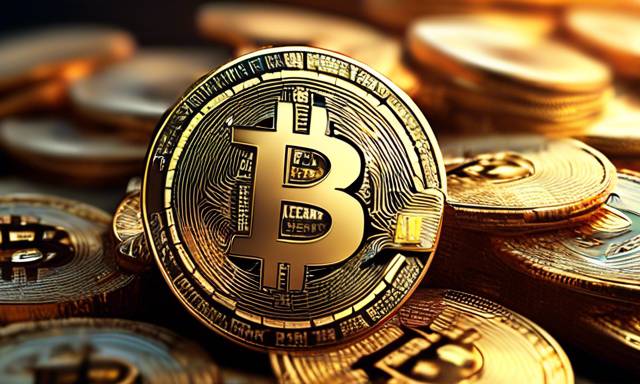Coinbase Launches New Tokenized Bitcoin on Ethereum 🌟
Recently, Coinbase, a publicly listed cryptocurrency exchange, announced the introduction of a tokenized Bitcoin, dubbed cbBTC. This innovative digital asset operates on both the Ethereum blockchain and its Layer-2 network called Base. Shortly after its debut, cbBTC’s market capitalization skyrocketed to over $100 million, showcasing a significant interest from traders and investors alike.
Market Performance Highlights 📈
As reported by Dune Analytics, within just 24 hours of its introduction, cbBTC achieved a market valuation exceeding $100 million, buoyed by a circulating supply of over 1,700 tokens. The majority of these tokens exist on the Ethereum platform, indicating a strong initial demand among users who are looking to leverage their Bitcoin assets in an innovative manner.
Understanding cbBTC: An ERC-20 Token 🔍
Coinbase Wrapped BTC (cbBTC) is an ERC-20 token structured to maintain a 1:1 backing by Bitcoin stored in Coinbase’s reserves. Wrapped tokens empower users by allowing them to utilize their Bitcoin holdings in multifaceted ways across the decentralized finance (DeFi) landscape:
- Liquidity Provision: Users can contribute their Bitcoin as liquidity to various DeFi protocols.
- Collateral for Borrowing: Individuals can use cbBTC as collateral to obtain other crypto assets.
- Broader Participation: The token enables users to engage in a wider array of on-chain activities and strategies.
Several well-known DeFi platforms, such as Aerodrome, Curve, Sky Protocol, Compound, Maple, and Aave, have already begun to support cbBTC, enhancing its utility within the ecosystem.
Reception and Critiques 🗣️
Initial responses to cbBTC have highlighted both enthusiasm and skepticism. Supporters praise the token for its redeemable nature on Coinbase, allowing users to directly exchange their tokenized Bitcoin for actual BTC without relying on trading pools that might not have sufficient liquidity. On the other hand, some industry observers voice concerns.
Luke Youngblood, a contributor at Moonwell DeFi, estimated that the launch of cbBTC could potentially make over $20 billion worth of retail Bitcoin and $200 billion worth of institutional Bitcoin available for use on-chain through the Base network. However, there were notable critiques regarding the control that Coinbase holds over cbBTC.
Concerns Over Centralization and Control 🚨
Critics argue that unlike other tokenized Bitcoin solutions, such as Wrapped Bitcoin (wBTC) from BitGo, Coinbase has the authority to freeze accounts and blacklist addresses that engage in transactions involving cbBTC, which raises concerns about centralization. This point has been emphasized by various users within the community.
Notably, Justin Sun, the founder of TRON, expressed his disapproval of the new token. He raised issues about the absence of Proof of Reserve audits and warned of the possibilities of governmental interference, labeling cbBTC as “central bank bitcoin.” This indicates a growing worry among some crypto enthusiasts about the implications of centralized control in an exceedingly decentralized space.
The Future of cbBTC and Market Dynamics 🔮
The introduction of cbBTC adds a new layer of complexity to the market dynamics of tokenized assets, especially Bitcoin. As this year progresses, it will be interesting to observe how users and investors respond to the token’s existence and role in the broader DeFi space. The interplay between decentralized and centralized systems remains a critical dialogue that could shape the future of blockchain technology.
Hot Take: Centralization vs. Decentralization in Crypto ⚖️
The launch of cbBTC has ignited conversations surrounding the balance between centralization and decentralization within the cryptocurrency ecosystem. As traditional financial institutions further encroach upon what was once a purely decentralized space, stakeholders must navigate the implications of using tokenized assets that are tethered to centralized entities. Keeping a pulse on these developments will be essential as the market evolves.





 By
By

 By
By

 By
By
 By
By